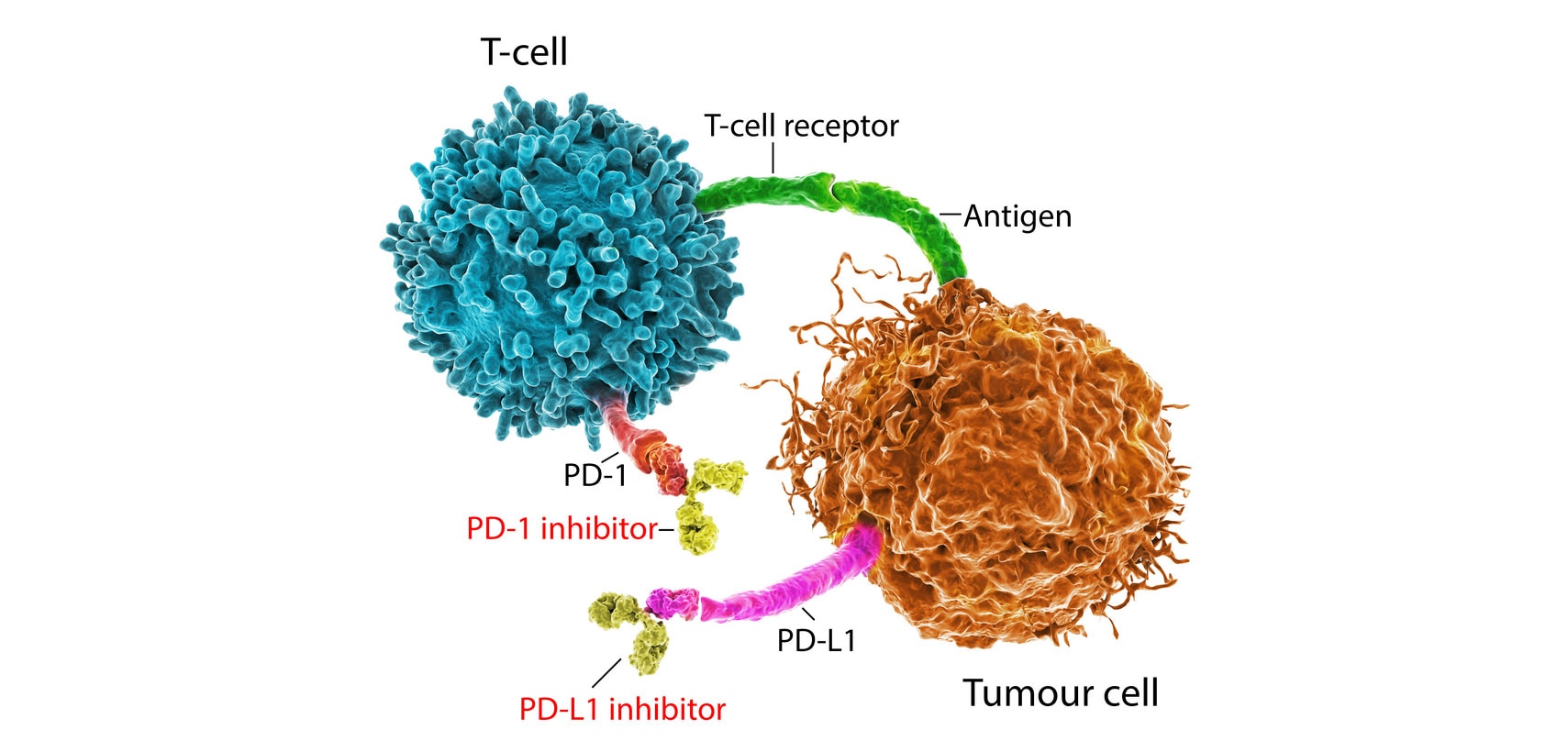-
Reagents
- Flow Cytometry Reagents
-
Western Blotting and Molecular Reagents
- Immunoassay Reagents
-
Single-Cell Multiomics Reagents
- BD® OMICS-Guard Sample Preservation Buffer
- BD® AbSeq Assay
- BD® Single-Cell Multiplexing Kit
- BD Rhapsody™ ATAC-Seq Assays
- BD Rhapsody™ Whole Transcriptome Analysis (WTA) Amplification Kit
- BD Rhapsody™ TCR/BCR Next Multiomic Assays
- BD Rhapsody™ Targeted mRNA Kits
- BD Rhapsody™ Accessory Kits
- BD® OMICS-One Protein Panels
- BD OMICS-One™ WTA Next Assay
-
Functional Assays
-
Microscopy and Imaging Reagents
-
Cell Preparation and Separation Reagents
Old Browser
This page has been recently translated and is available in French now.
Looks like you're visiting us from {countryName}.
Would you like to stay on the current location site or be switched to your location?
The Role of Immune Checkpoint Receptors in Cancer Immunity
Checkpoint Inhibitors
The human immune system fights not only external pathogens but also clears internal abnormalities like dying and cancer cells. The cancer immunity cycle begins when antigens produced by tumor cells are processed by dendritic cells for antigen presentation. This is followed by additional signals that activate and induce an anti-tumor response by T cells, eventually resulting in the killing of tumor cells.
To prevent over-stimulation in the presence of antigens associated with tumor cells, the immune system has several receptors that negatively regulate its functions. Referred to as checkpoint receptors, these control the initiation of a productive immune response and prevent excessive T cell activation that could lead to inflammatory autoimmune processes. However, tumor cells often utilize immune checkpoints to favour growth. The blocking of checkpoint receptors like CTLA-4 or PD-1 allows the immune system to overcome its regulatory mechanisms and provide a robust anti-tumor response. Conversely, the activation of checkpoint receptors in autoimmune diseases helps in reducing inflammation.

Immune Checkpoint Signalling in Cancer Immunotherapy
Immune checkpoint blockade therapy has become a major weapon in fighting cancer. Antibody drugs such as anti-PD-1 and anti-PD-L1 demonstrate obvious advantages such as broad applicability across cancer types and durable clinical response when treatment is effective.1 These therapies have been approved to treat a wide variety of cancers like blood, skin, lung, liver and kidney cancers. However, as clinical data accumulates worldwide, some drawbacks have been revealed. Immune checkpoint blockade therapy has a low response rate of 10-30% in most cancers. For some cancers like colorectal cancers with microsatellite instability, anti-PD-1/anti-PD-L1 shows no effect.1 Expanding our understanding of immune checkpoint biology may improve the efficacy of current checkpoint blockade therapies, and may also inform the generation of novel immunotherapy approaches for translation into the clinic.1
Flow cytometry and Multiomics can be used to study immune checkpoint molecules as functional biomarkers in cells.
Download “The role of immune checkpoint receptors in cancer immunotherapy poster”.
BD and the BD Logo are trademarks of Becton, Dickinson and Company or its affiliates. © 2022 BD. All rights reserved.